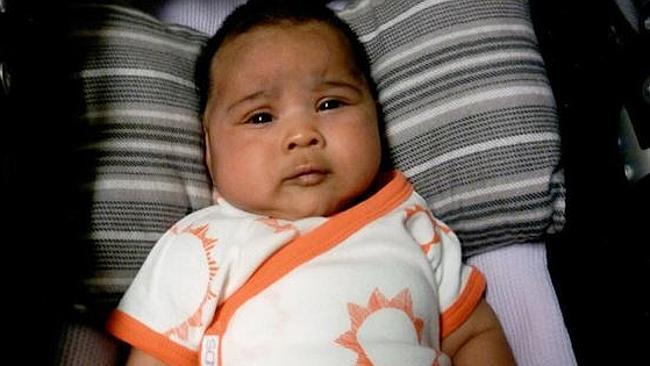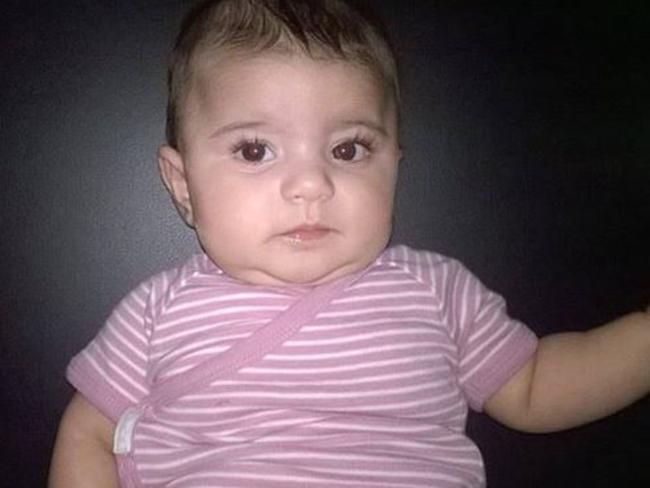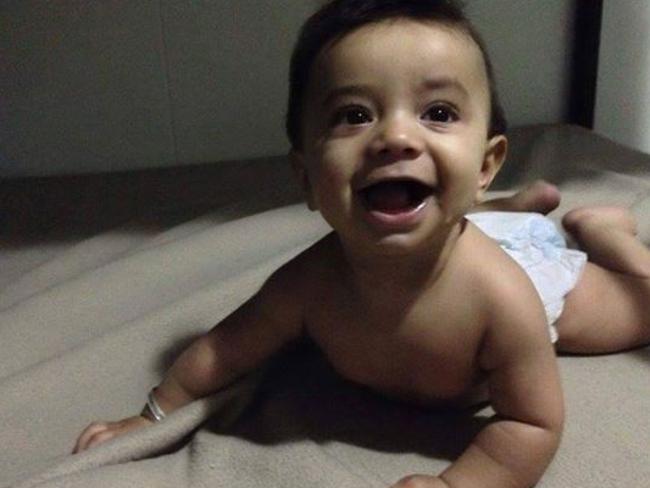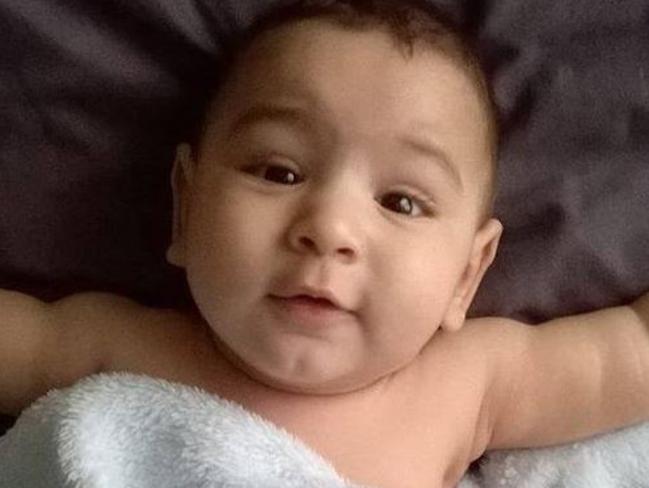High Court to deliver judgment in case challenging offshore detention in Nauru
THE High Court has thrown out a challenge, leaving the lives of 37 babies born in Australia in limbo. Are we turning our backs on them?

THE High Court has thrown out a legal challenge to offshore immigration detention in a decision that could see hundreds of asylum seekers returned to Nauru including 37 babies born on Australian soil.
This morning the court released its judgment that found the Australian Government did act lawfully in setting up an overseas detention facility in Nauru and it could send asylum seekers back there.
The decision impacts the lives of 267 asylum seekers who are currently living in Australia, 91 of them are children including 37 babies. Many of these were allowed into Australia to give birth, for medical treatment, mental health or other reasons. They include women who had been sexually assaulted and a five-year-old boy allegedly raped at Nauru.
These families have just begun to enjoy “normal” lives, 36 of the children are already attending Australian schools.
Despite the ruling, there are calls for Prime Minister Malcolm Turnbull to allow the families to stay in Australia.
The Human Rights Law Centre, which brought the legal action against the Australian Government, said asylum seekers were now terrified they would face immediate deportation to Nauru.
“The legality is one thing, the morality is another. Ripping kids out of primary schools and sending them to be indefinitely warehoused on a tiny remote island is wrong,” the centre’s director of legal advocacy, Daniel Webb said in a statement.
“We now look to the Prime Minister to step in and do the right thing and let them stay so these families can start to rebuild their lives.”
While the centre was disappointed with the ruling, Mr Webb said the decision did not give the government “blanket authority” as the court also recognised the important limits on its powers around the purpose of detention and its length.
During a press conference after the ruling, Mr Webb said it would only take the “stroke of a pen” for the PM to do the decent thing and let the families stay in Australia.
He said he was sure there would be “high fives all around” in the immigration office right now but there were 267 people around Australia who were terrified.
When he told the Bangladeshi woman involved in the case about the judgment, Mr Webb said the first thing she did was break down in tears.
Asylum seekers will get 72 hours notice from the government of deportation
We call on @TurnbullMalcolm to #LetThemStay. There's no morality or victory in sending 37 babies to danger on #Nauru pic.twitter.com/c8Xel5Enhh
— ASRC (@ASRC1) February 3, 2016
The families & children must be terrified of return to abuse & harm. Now @TurnbullMalcolm must act to #LetThemStay https://t.co/a9EUmREpde
— Serina McDuff (@SerinaMcDuff) February 3, 2016
Protest numbers grow after High Court ruled in favour of govt's offshore detention, chanting "let them stay" #auspol pic.twitter.com/twDqrFGZZS
— Catalina Florez (@florezcata) February 3, 2016
This morning we found out that sending kids back to #Nauru is legal. Doesn't mean it's right. @PeterDutton_MP @TurnbullMalcolm #auspol
— David (@PerthChocoholic) February 3, 2016
Any comment from @RichardMarlesMP or @billshortenmp or the ALP on the HC decision? Anything?? Spineless! #LetThemStay
— Jen Norton (@jennynorton) February 3, 2016
The Australian Greens has called on the PM to rule out sending children and their families back to Nauru.
“Sending these children to Nauru would be child abuse and Malcolm Turnbull needs to decide if he is willing to authorise that,” Greens immigration spokeswoman, Senator Sarah Hanson-Young said in a statement.
“Malcolm Turnbull and Bill Shorten both need to make their position on this clear. Do they support the Nauru camp and the plans to send these children there.”
UNICEF is calling for the interests of the children to be prioritised, and says that offshore processing was also placing stress on Nauru’s developing social and welfare systems.
UNICEF Australian chief technical adviser Amy Lamoin said the government had done the right thing by allowing vulnerable children and families into Australia and it could allow them to stay.
“We cannot disrupt children and parents’ recovery processes and we cannot return them to situation where they may experience serious harm,” Ms Lamoin said.
CHILDREN ALLEGEDLY RAPED
These people are terrified of being sent back to Nauru, and with good reason.
Paediatrician Dr Karen Zwi said she had treated a five-year-old boy who was allegedly raped.
Dr Zwi said the child’s greatest fear was returning to Nauru.
“That is this huge cloud hanging over him that he will be returned to an absolutely traumatic and devastating environment for him,” she told 7.30.
Ahead of the court decision, Immigration Minister Peter Dutton insisted the government acted in the best interests of asylum seekers brought to Australia from Nauru for medical treatment. “We’re not going to send people into harm’s way,” he told Sky News.
Mr Dutton said his department, in making the decision whether to return the five-year-old boy, would take into account medical advice.
“If people need prolonged support they receive it,” he said. “We’ve provided significant support for a number of people who have come to Australia because they can’t get the requisite medical needs in Nauru or in PNG.”
But Mr Dutton said the government had to be mindful of the message being sent to people smugglers.
Although, he wanted to reduce the number of children in detention to zero, people smugglers were channelling a message to potential customers that “Dutton’s a soft touch and you can put women and children on boats and be successful”.
Another paediatrician Hansantha Gunasekera said reports of sexual assaults were widespread.
“Across the detention network there’s a report of a sexual assault every 13 days. Most of those are children, which is even more horrifying. We just can’t keep doing this,” he told 7.30.

Dr Gunasekera worked at the regional processing centre in Nauru and he could be jailed for up to two years for speaking out.
Despite this, he has decided to reveal the shocking reality of life in these centres in the hopes that alternatives will be considered.
He said he saw children as young as nine who were suicidal.
“We really hardly ever see young children and adolescents so traumatised by life that they would want to take their own life. That’s a medical emergency and it’s catastrophic and we just do not see that very often,” he said.

A former detainee who was moved out of detention after becoming suicidal told 7.30 that she saw people self-harming every day, people hanging themselves or cutting themselves.
“You have so much time on your hands. The nights are too long, days are too long. Nothing gets shorter. And daytime, it’s very hot, like 45 degrees every single day, people live in tents,” she said.
Another detainee, Assiya said she had no idea it would be so hard.
“I knew, like, when you come a country, there will be rules and I knew I would be kept somewhere for a little while, but I never thought that it was going to be that hard,” she said.
“Even the kids, they are very young, like five years old, two years, three years, they know they are in hopeless place. They know they are in a hole that nobody knows about.”
HIGH COURT CASE
The lives of hundreds of asylum seekers hinged on the High Court decision that was handed down this morning.
The case revolves around one Bangladeshi woman brought to Australia from Nauru because of serious health complications during her pregnancy. She gave birth to a daughter in Brisbane.
It had the potential to impact many others as the legal arguments involved the role that the Australian government played in funding and controlling the detention of people in other countries.
While Daniel Webb from the Human Rights Law Centre stopped short of saying the case could mean an end to offshore immigration detention, he did say it could have significant repercussions.
“The answers to the questions in this case — one way or another — could have significant implications going forward,” Mr Webb told ABC ahead of the decision.
As of December 30, there were 1459 asylum seekers living in detention centres overseas, 537 were in Nauru and 922 on Manus Island, Papua New Guinea.
Regardless of the High Court decision, the Human Rights Law Centre is urging Prime Minister Malcolm Turnbull to let the 267 asylum seekers living in Australia stay in the country. It has started a GetUp! petition.
Children living on Nauru have also launched a Change.org petition to ask Mr Turnbull to free them from detention and resettle genuine refugees in Australia.
In a video they ask others to support their petition and describe the disturbing conditions that they live in.
“The legality is complex but the morality is simple — it would be fundamentally wrong for the government to condemn these families to a life in limbo on Nauru,” Mr Webb said.
A stroke of a pen is all it would take for PM Turnbull to #LetThemStay https://t.co/lM54xDA5m9 pic.twitter.com/Den1v4BbKv
— HumanRightsLawCentre (@rightsagenda) February 2, 2016

Just before the case was launched the Nauru Government announced it would end detention, allowing asylum seekers to roam around the island freely. It also plans to process refugee applications for the remaining 600 asylum seekers by the end of the week.
Mr Webb said the government had shifted the goalposts during the case.
But Immigration Minister Peter Dutton has already confirmed that preparations are underway to house more asylum seekers at Christmas Island in case the government lost the case.
Asylum seekers on Nauru are expected to hold a protest rally on the island to coincide with the court ruling.
